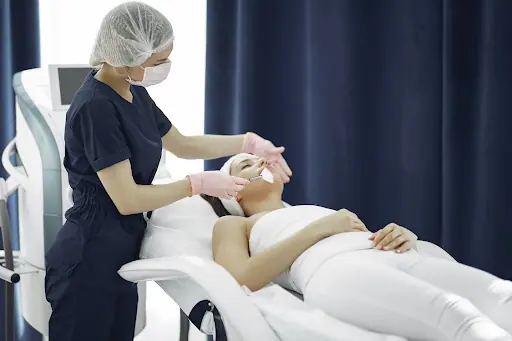Everything You Need To Know Before A Chemical Peel. Check this out.

What does a chemical peel do?
How does it work?
The most common type of chemical peel is a gel or water-like substance which is applied to the face like light paint. The peel is active until it is neutralised with water.
For strong, deep acid peels to achieve the desired effect without “overshooting” and causing significant tissue damage, the right amount of neutralisation is required.
Peels can also result in irritation. This might have both favourable and bad effects, such as acne and post-inflammatory pigmentation.
If you’re searching for a “chemical peel near me”, make sure you select the best skin specialist in Melbourne who can perform the treatment effectively and without causing any negative effects.
Do chemical peels come in different strengths?
Chemical peels are available in three different categories for the strength of the procedure: superficial, medium, and deep.
Depending on what you’re attempting to treat, you’ll be allocated a certain level, accordingly.
According to experts, superficial and medium chemical peels can target acne problems such as blackheads, fine wrinkles, pigmentation, and photodamage. Deep chemical peels can assist with scarring and skin pigmentation.
People are typically drawn to superficial peels, given that they require little downtime.
Rather than spending money on a number of superficial peels, you may be better off investing in some downtime to perform a medium-strength peel if you are attempting to cure bad acne scars or serious UV damage.
What is downtime?
The depth of the peel influences how long it takes for the skin to recover. The only other side effect of superficial peels is brief erythema (redness of the skin).
Deep peels result in little oedema (fluid retention), skin flaking, peeling, and erythema.
If proper aftercare is performed, these symptoms can settle down, during a period of seven to ten days, to which the skin gradually returns to its usual baseline condition after slowly changing from red to pink.
Deeper peels often require a longer recovery time, which must be weighed against the potential benefits.
Who is qualified to provide a professional chemical peel?
Although experienced beauticians sometimes offer medium and deep chemical peels, doctors and nurse practitioners are most qualified to perform them.
When determining who is most equipped to offer a particular service, a basic guideline is to evaluate who can best cope with the probable adverse effects of that treatment, should they occur.
In order to guarantee you get the best results, the person performing your treatment can help you choose the right peel for your skin condition and the best way to prepare your skin.
At Main Street Cosmetics, our qualified skin doctors in Melbourne can provide you with tailored advice and treatment to maximise your skincare regime, ensuring long-lasting results that leave you feeling confident in your own skin. In order for you to achieve your ultimate skin objectives, our expertly trained nurses and doctors combine the newest technology with ongoing assistance.
Call us at 03 9739 3830 or email us at info@mscosmetic.com.au to to learn more about chemical peel treatments and other skin treatment options available to you.